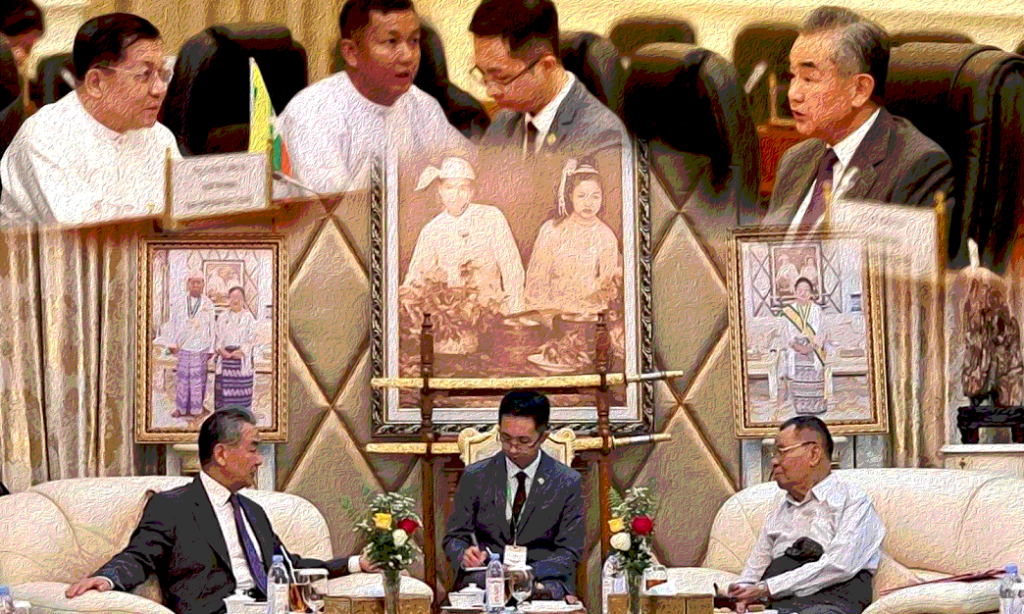Myanmar Spring Chronicle – August 14 Overview
(MoeMaKa) August 15, 2024
Different Perspectives on the Chinese Foreign Minister’s Visit
The visit of Chinese Foreign Minister Wang Yi, who arrived in Naypyidaw after attending the Mekong-Lancang Cooperation meeting, and met with the military council leader and former military leader U Than Shwe, can be seen as a significant development against the backdrop of the current political and military situation. For the military council, which is currently in a military crisis, this visit may involve diplomatic discussions that emphasize China’s support, particularly regarding its stance and assistance towards the northern Shan State ethnic armed groups.
While the discussions were generally reported in a standard manner, many speculate and criticize the official statements, interpreting them beyond their diplomatic language.
In recent months, the military council has faced significant losses in the northern Shan State, where they lost control of Kokang, with thousands of troops killed, weapons surrendered, and communication with headquarters cut off. The military council is now suspected of receiving modern weapons, military technology, and financial support from China in these operations, a suspicion that aligns with the timing of Wang Yi’s visit.
Wang Yi, who has served as China’s Foreign Minister for many years and briefly handed over the position before being reappointed, has extensive diplomatic experience and is familiar with Myanmar’s issues, having dealt with both the elected government and military regimes before the coup.
Recently, the military council lost control of strategic areas, leading to speculations that China might have provided technical or military support. After the loss of Lashio, the council’s speeches hinted at this suspicion. With China being the only country with potential involvement in the ongoing armed conflicts in northern Shan State, it is clear that the military council’s references were aimed at China, a perception likely shared by China.
China’s involvement in the 1027 military operation last year, while not directly assisting the ethnic armed groups, clearly aligned with their objectives, something well understood by the military council.
Given this situation, the military council has relied on Russia for military supplies and expertise, as they have fewer direct economic interests compared to China. However, Myanmar’s geographical proximity and political significance to China make it impossible for the military council to ignore China, a realization that likely became clear to Min Aung Hlaing after the 1027 military operation.
These dynamics suggest that the military council’s approach to Wang Yi during this visit might have been cautious and strategic.
After Wang Yi’s meeting on August 14, the military council’s statements emphasized the significance of the visit. The state-owned Myawaddy TV aired a video of the initial greetings between Wang Yi and the military council leader, highlighting the importance of the visit.
Although the military council claimed that Wang Yi expressed opposition to the conflicts in northern Shan State, this was not mentioned in China’s official statements. China’s general stance was that they do not support armed conflicts in Myanmar, without specifically referencing northern Shan State.
The military council also discussed preparations for upcoming elections, with Wang Yi reportedly advising for inclusive elections, according to official statements.
Wang Yi’s meeting with former military leader U Than Shwe, who retired in 2010, during his visit suggests China’s recognition of the former regime leader’s status. Political analysts in Myanmar likely see this visit as more than just a diplomatic gesture or a meeting with an old friend.
China’s investments in Myanmar, including oil and energy pipelines from Yunnan to the Bay of Bengal and planned deep-sea ports, illustrate the extent of China’s involvement in Myanmar’s affairs.

